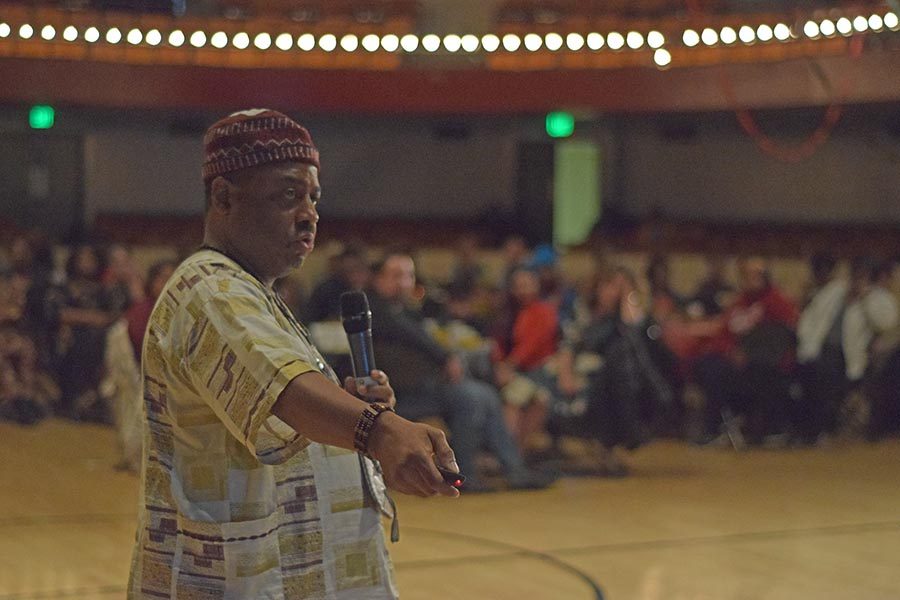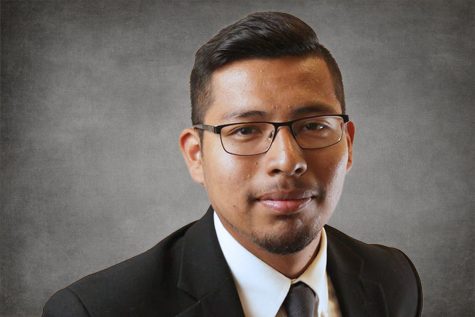Professor talks failures of education system, bias
Community discusses inaccuracies in history textbooks, honors art
Mar 1, 2017
RICHMOND — Community members gathered to celebrate the intellectual contributions of African people and enjoy cultural performances during the Black History Celebration in the Civic Center here on Saturday.
Richmond Mayor Tom Butt said, “We are here to celebrate black history. The African-American community in Richmond is one our strongest communities and it goes way back in the history of the city of Richmond.”
The annual event focused on the theme, “The Crisis in Black Education,” and featured dinner accompanied by a variety of dance groups, artists, a fashion show, and an award ceremony and presentations from speakers.
Contra Costa College’s history department Chairperson Manu Ampim presented a brief history on the founder of Black History Month, historian Carter G. Woodson and his books.
Ampim said that when he was asked to participate in this event he knew that the spotlight should be on the intellectual aspect.
He said, “It’s not just the cultural dances. I hope the dances can give them inspiration to remember what I was sharing. I hope people know the work of Carter G. Woodson and his intellectual work to connect people of African history to U.S. history and world history.”
He said as innovators and creators, African people have made a substantial impact on intellectual development and growth of the world.
Ampim said that the most important thing people can do now, after they have gained knowledge,is to make sure to apply it.
“What do we do now? We take these accomplishments and make them practical,” he said.
“I hope people apply this information throughout the year, and take the information that they learn outside of the classroom and apply it in the classroom to challenge students, and I hope that happens in places like Contra Costa College.”
Oakland resident Sonomia Byrd said every year she and her family attend the event and participate in the routine, go through different events, learn new things and move through the motions.
“But where is the radical action after? Black History Month brings up so much suppressed information that the educational system doesn’t teach,” she said.
“This month is not being used to its full potential, to be a push to change things toward a better education of our black communities.”
Byrd said that the community should challenge the narrative in high school and college classrooms, to change the curriculum to be more inclusive of black history, even after the month ends.
Richmond resident Margo Pickett said, “This event allowed me to keep in touch with my culture. I learned about Woodson and about his books and historical facts about classical African civilizations.
“I feel like I need to read Woodson’s books. The more we know, the more efficient we can be when we get involved in the community.”



